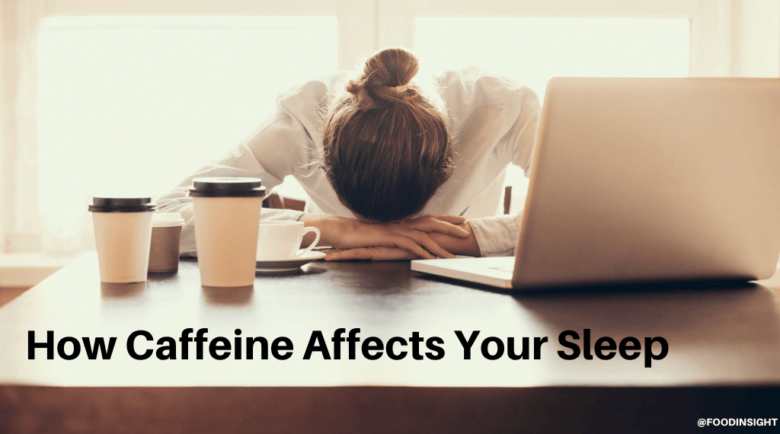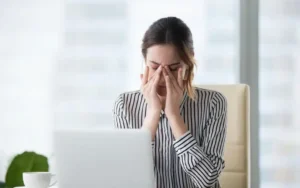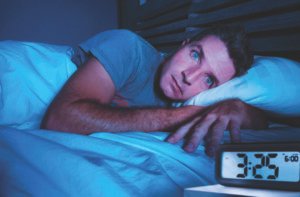A major stimulant that many people use to stay awake and combat fatigue is caffeine. Caffeine is a staple in many people’s daily lives. It’s found in beverages like coffee, tea, energy drinks, and soda. Caffeine can give you a short-term boost of energy and mood, but it can disrupt your sleep. Understanding how caffeine affects sleep is important for people who have trouble sleeping or who drink a lot of coffee during the day. This article discusses how caffeine affects sleep, why it’s hard to relax, and how to limit caffeine intake for better sleep and overall health.
How Does Caffeine Work in the Body?
Caffeine works by blocking adenosine receptors in the brain. This prevents adenosine from calming you down and making you sleepy. The result is that you feel less tired and more alert. Caffeine can give people energy, help them focus, and stay awake. Drinking coffee during the day is fine, but caffeine can keep you awake for hours, so drinking it later in the day can make it harder to fall asleep. Caffeine has a half-life of about 3 to 5 hours, which means it can remain active in your body long after you drink it. This prevents your body from getting enough rest and sleep.
How Does Coffee Make You Sleepless?
Coffee can make it harder to fall asleep and stay asleep, and it can also make sleep less restful. If you drink it too late in the day, caffeine can prevent your body from entering the deep sleep phase needed for restorative rest. Additionally, coffee increases the stress hormone cortisol, which makes it more alert and harder to fall asleep. Consuming caffeine for extended periods, especially in the afternoon or evening, prevents you from getting enough sleep, which is bad for your physical and mental health.
Modifying Factors That Affect Coffee Sleep:
Caffeine affects sleep in different ways, depending on a person’s sensitivity, metabolism, and overall health. While a small amount of coffee can prevent some people from falling asleep, others can tolerate it well. The way caffeine is broken down is also affected by age. Caffeine can stay in the body longer in older people because it is harder for them to get rid of it. Genetics also plays a role. Some people break down caffeine faster than others, and for some people, the effects can last longer. Personal habits, such as not sleeping well, can make it harder to fall asleep after drinking coffee.
Monitor Your Caffeine Intake:
The best way to prevent coffee from keeping you up at night is to control when and how much you drink. It is important to know when to drink caffeine; most experts say you should stop drinking caffeinated beverages at least six hours before bedtime. For people who are more sensitive to coffee, this window may be longer. Depending on how much coffee you can drink, you may reduce your risk of sleep problems. People who are used to drinking large amounts of caffeine may also benefit from gradually reducing their intake, as sudden changes can cause withdrawal symptoms, such as headaches or irritability.
Non-caffeine Energy Boosters:
People who rely on coffee to stay awake during the day may want to try other substances that can help them stay active without disrupting their sleep. Regular activity is one of the best ways to combat fatigue and increase energy. Exercise improves blood flow, produces serotonin, and helps you sleep better. Staying hydrated throughout the day is also important to prevent fatigue. Eating a balanced diet with plenty of fruits, vegetables, whole grains, and lean proteins can help you stay energized throughout the day. Stress-relieving activities such as yoga, mindfulness, and deep breathing can also help you focus and reduce your caffeine cravings.
Switch to a Deferred Option:
If you like hot drinks but still want to, switching to decaffeinated coffee or tea can help you reduce your caffeine intake. Decaffeinated beverages contain much less caffeine, so they are less likely to keep you up at night. Herbal teas such as chamomile, peppermint, and lavender are good choices because they have soothing properties and can help prepare the body for sleep. Making herbal teas part of your evening routine can help you sleep better and drink less coffee.
How to Improve Your Sleep Hygiene for Better Rest?
In addition to limiting your coffee intake, better sleep hygiene is important for better sleep. Sleep hygiene is a set of habits and behaviors that help you get a good night’s sleep. Establishing a regular sleep routine, making sure your bedroom is cool, dark, and quiet, and staying away from screens before bed can all help you sleep better. In addition to reading, meditating, or listening to soothing music before bed, doing these things can also tell your body that it’s time to wind down and prepare you for sleep.
Conclusion:
While caffeine is a powerful stimulant that many people use to stay awake and energized, it can make it difficult to fall asleep if not used properly. Caffeine blocks adenosine receptors and increases cortisol levels, increasing the time it takes to fall asleep and reducing sleep quality. To sleep better, limit your caffeine intake by drinking less alcohol, especially in the afternoon and evening. To reduce the effects of caffeine on sleep, drink decaffeinated beverages, stay hydrated, exercise regularly, and improve your sleep habits. People can improve their overall health and sleep quality by following these tips and still get the caffeine boost when they need it.
FAQ:
1. How does coffee make it harder to fall asleep?
Caffeine prevents you from feeling sleepy by blocking adenosine receptors in your brain. It also increases cortisol levels, which makes you more awake and harder to fall asleep.
2. How long should you wait before going to bed before drinking coffee?
Typically, you should avoid drinking coffee for at least six hours before bedtime to help you fall asleep more easily. On the other hand, more sensitive people may need to stop drinking coffee sooner.
3. Will drinking coffee in the morning make it harder for me to sleep?
Caffeine consumed in the morning has more time to be broken down by your body before you go to bed, making it less likely to keep you awake.
4. What other energy-boosting beverages are there besides coffee?
Alternatively, you can stay hydrated, exercise regularly, eat nutritious foods, and learn relaxation techniques to help you focus and have more energy.
5. Does coffee make it harder to fall asleep for long periods?
Unfortunately, drinking too much coffee or drinking it late at night can make it harder to fall asleep for long periods. This can have long-term effects on your mental and physical health.




